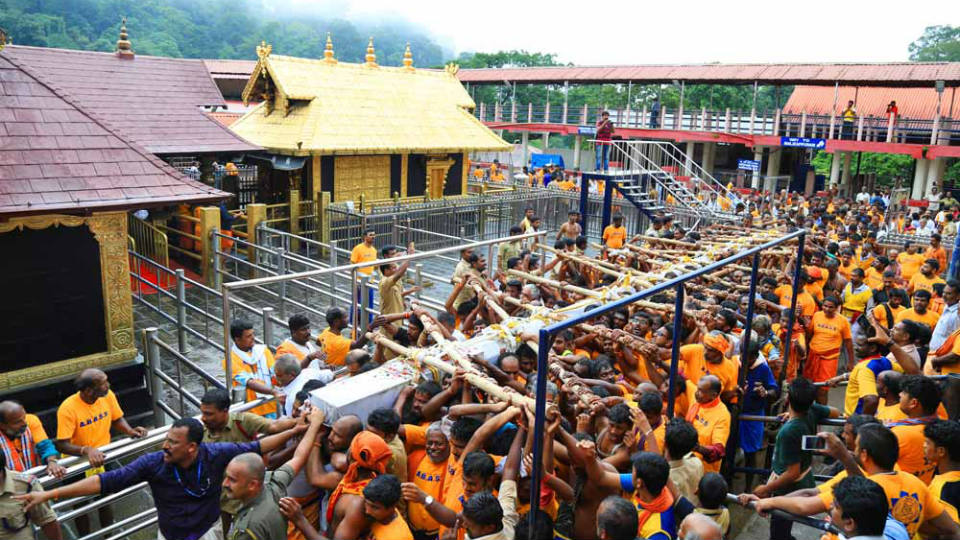Supreme Court lifts centuries’ old prohibition of women between ages 10 and 50 from entering Sabarimala temple in Kerala on Friday. “The practice in Sabarimala temple violates the rights of Hindu women. It has to be in harmony with the Constitution” said Chief Justice of India Dipak Misra. The verdict was a 4:1 judgment to upholds right of women to worship Lord Ayyappa however, Justice Indu Malhotra has a dissenting opinion.
“The issues raised have an impact not just wrt Sabarimala but other places of worship too. Religious practices cannot be solely tested on the basis of Article 14,” said Indu Malhotra J.
The Supreme Court has observed, “What applies to a man, applies to a woman. Woman’s right to pray was not dependent on any law but it is a Constitutional right”. It also said, “Once you open it for the public, anyone can go”.
“Your right to pray being a woman is equal to that of a man and it is not dependent on a law to enable you to do that. Religion cannot be cover to deny women right to worship. To treat women as children of lesser God is to blink at Constitutional morality. Article 17 is not restricted to abolition of untouchability, gives broad interpretation to Article 17,” said Justice DY Chandrachud.
“The law and society are tasked with the task to act as levellers. Devotees of Ayyappa do not constitute a separate relgious denomination. Rule 3(b) of 1965 Rules is a clear violation of right of Hindu women to practice religion under Article 25. The bar on entry of women between age of 10 and 50 years is not an essential part of the religion. Rule 3(b) is ultra vires 1965 Act, writ petition allowed,” said CJI Dipak Misra.
A constitution bench comprising five judges, headed by Chief Justice of India Dipak Misra was hearing the case on temple’s prohibition rule of entry of women who are in their menstruating years. The judges include Justice RF Nariman, AM Khanwilkar, DY Chandrachud, and Indu Malhotra. The case was being heard for over eight days where the ban has statutory backing in the form of Rule 3(b) of the Kerala Hindu Places of Public Worship (Authorisation of Entry) Rules, 1965.
The case was brought to the Supreme Court’s notice after an Indian Young Lawyers Association filed a PIL challenging the practice of disallowing entry of women aged between 10 years to 50 years. The case has been before the Supreme Court since 2006 however, the first hearing was done only on July 17, 2018.
















